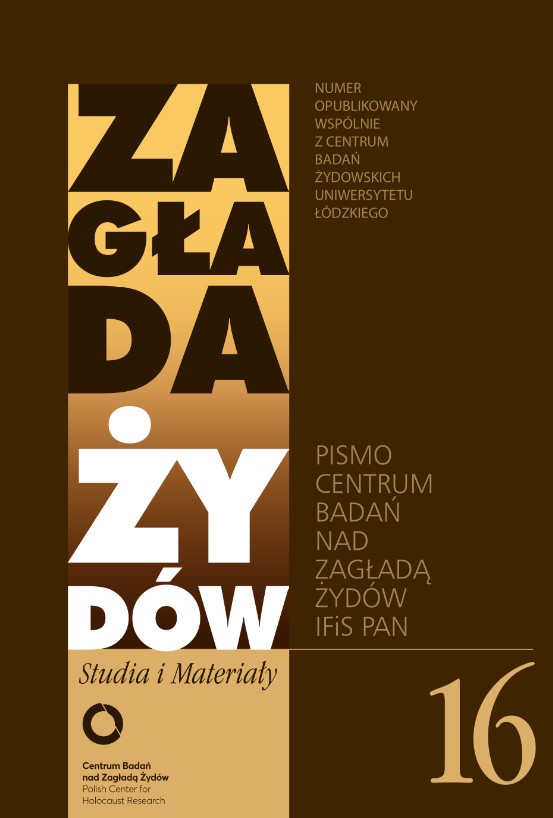Pamięć marginalizowana, niechciana, cicha… – łódzkie getto w polityce pamięci historycznej PRL
The Marginalized, Unwanted, and Silent Memory… – Łódź Ghetto in Communist Poland’s Politics of Memory
Author(s): Andrzej CzyżewskiSubject(s): Local History / Microhistory, WW II and following years (1940 - 1949), Post-War period (1950 - 1989), History of Communism, History of the Holocaust, History of Antisemitism, Politics of History/Memory
Published by: Stowarzyszenie Centrum Badań nad Zagładą Żydów & IFiS PAN
Keywords: ghetto; Łódź; politics of historical memory; politics of memory; People’s Republic of Poland; Trade Union Left; Mordechaj Chaim Rumkowski;
Summary/Abstract: The tragic experiences of prisoners of the second largest ghetto organized by the Germans on Polish lands (after the Warsaw ghetto) were seldom incorporated into the sphere of official commemorations of World War II in communist Poland. This text attempts to retrace the increasing marginalization of collective memory in the Łódź ghetto during 1945‒1989 and point to the peculiar niches where its cultivation was permitted. The author is interested predominantly in the issue of the communist politics of historical memory with regard to the history of the ‘closed quarter’ in Łódź, that is manifestations of the top-down formatting of collective perceptions of the occupation-period history of the Bałuty quarter, which was isolated from the outside world. In the background of these reflections appears the issue of tension between official and popular memory and a question as to when and in what contexts the content of the latter could manifest themselves in the public space of the People’s Republic of Poland. The article’s source base is publications, periodicals, and selected documentation of institutions co-creating the communist politics of historical memory.
Journal: Zagłada Żydów. Studia i Materiały
- Issue Year: 2020
- Issue No: 16
- Page Range: 118-159
- Page Count: 42
- Language: Polish

